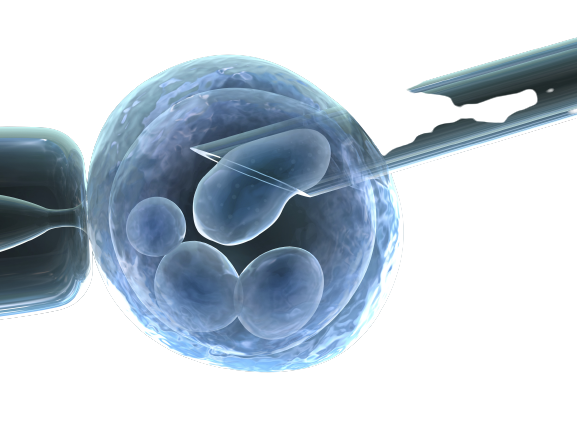Preimplantation Genetic Diagnosis
Embracing Genetic Insight for Parenthood
In today's world of advanced reproductive technologies, Pre-Implantation Genetic Diagnosis (PGD) stands at the forefront, offering an innovative approach to family planning. PGD empowers individuals and couples to gain vital genetic insights into their embryos before implantation, allowing them to make informed decisions and potentially reduce the risk of passing on certain genetic disorders.

THE PROCESS OF PRE-IMPLANTATION GENETIC DIAGNOSIS (PGD)
Partnering with In Vitro Fertilization (IVF)
Pre-Implantation Genetic Diagnosis (PGD) is typically conducted in conjunction with in vitro fertilization (IVF). IVF involves the stimulation of the ovaries to produce multiple eggs, which are then retrieved and fertilized in a laboratory setting. This creates a pool of embryos for further evaluation using PGD.
Embryo Biopsy
Extracting Cells for Genetic Analysis: In PGD, a small number of cells are carefully extracted from the developing embryos. This biopsy procedure is performed by highly skilled embryologists using specialized micromanipulation techniques. The cells are carefully separated from the embryo while ensuring minimal disruption to its overall development.
Cutting-Edge Genetic Analysis Techniques
The extracted cells from each embryo are subjected to advanced genetic analysis techniques to reveal their genetic composition. These techniques may include polymerase chain reaction (PCR), fluorescent in situ hybridization (FISH), comparative genomic hybridization (CGH), or next-generation sequencing (NGS). These methods enable the detection of specific genetic mutations, single gene disorders, or chromosomal abnormalities.
Embryo Selection
Choosing the Healthiest Candidates: Following the genetic analysis, the embryos are evaluated based on their genetic profiles. The genetic information obtained helps identify embryos that are free from specific genetic disorders or chromosomal abnormalities. The selection process aims to prioritize the transfer of genetically healthy embryos with the highest chances of successful implantation and the development of a healthy pregnancy.
Embryo Transfer and Implantation
Once the genetically screened embryos have been selected, they are transferred into the uterus of the intended mother or a gestational carrier. This process is typically performed under ultrasound guidance, ensuring accurate placement of the embryos in the optimal location for implantation. The hope is that one or more of the transferred embryos will successfully implant in the uterine lining, leading to a successful pregnancy.
Follow-up Monitoring and Support
After embryo transfer, individuals undergoing PGD will receive continued monitoring and support from their fertility clinic. This may include hormonal monitoring, ultrasound scans, and ongoing communication with the medical team to track the progress of the pregnancy.
Additional Embryo Freezing (Cryopreservation)
In some cases, there may be surplus embryos that are not transferred immediately. These excess embryos can be cryopreserved through a process called vitrification, which involves rapid freezing to preserve their viability for future use. Cryopreserved embryos can be stored for an extended period and later thawed and transferred during subsequent cycles, offering additional opportunities for pregnancy.
Delving into the Science of PGD
PGD involves extracting a small number of cells, typically from a developing embryo at the blastocyst stage, for genetic analysis. These cells are then subjected to advanced laboratory techniques, such as polymerase chain reaction (PCR), fluorescent in situ hybridization (FISH), comparative genomic hybridization (CGH), or next-generation sequencing (NGS). These methods allow for the detection of specific genetic mutations, single gene disorders, or chromosomal abnormalities.
What Gynescope Offers:

Initial Consultation and Evaluation
Our Fertility clinic offer an initial consultation where patients can discuss their medical history, concerns, and goals. During this evaluation, the clinic will conduct tests and assessments to determine the underlying causes of infertility and develop a personalized treatment plan.

Fertility Treatment Options
Our Clinic educate patients about various fertility treatment options, including IVF, and help them understand the benefits, risks, and success rates associated with each option. We guide patients in selecting the most suitable treatment based on their specific needs.

IVF Procedure
Our Fertility clinic specialize in performing the entire IVF procedure, from ovarian stimulation to egg retrieval, fertilization, embryo development, and embryo transfer. We have a team of skilled professionals, including reproductive endocrinologists, embryologists, and nurses, who ensure that the procedure is carried out safely and effectively.
INNOVATIONS AND OPTIONS

Advanced Techniques:
Overall, Through PGD, individuals and couples can gain invaluable insights into the genetic health of their embryos, empowering them to make informed decisions and increase their chances of achieving a healthy pregnancy and the birth of a healthy child..

Alternative Paths:
PGD can be of immense benefit to individuals and couples who are carriers of genetic conditions, have a history of chromosomal abnormalities, or are at an increased risk of passing on inherited disorders. It offers an opportunity to select embryos that are free from specific genetic conditions or chromosomal anomalies, thereby increasing the chances of a healthy pregnancy and the birth of a healthy child.
GYNESCOPE
Contact Us
Call: +234 816 659 3030
Email: gynescope@yahoo.com
Address: G.U Ake Rd 22/23
Newsletter
© 2023 Gynescope All Rights Reserved

